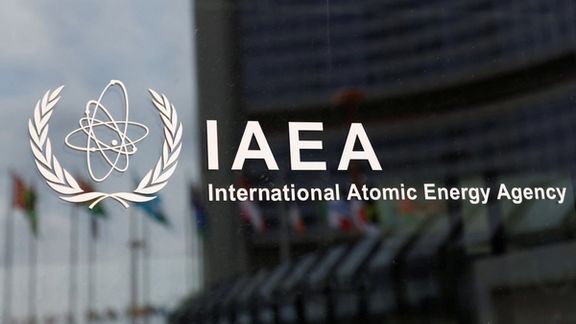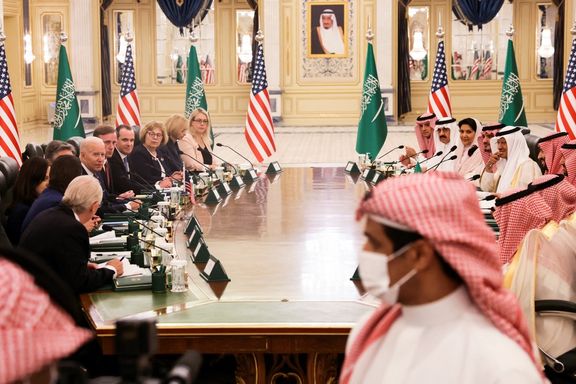Saudi Arabia Says It Plans Tougher IAEA Checks On Nuclear Program

Saudi Arabia said on Monday it has decided to accept full-blown nuclear safeguards by the UN’s watchdog, a change the agency has been demanding for years.

Saudi Arabia said on Monday it has decided to accept full-blown nuclear safeguards by the UN’s watchdog, a change the agency has been demanding for years.
For years the International Atomic Energy Agency, the IAEA, has been demanding from Riyadh to accept complete safeguards protocols and the accompanying monitoring of its nuclear activities.
Saudi Arabia has a nascent nuclear program that it wants to expand to eventually include activities like proliferation-sensitive uranium enrichment. It is unclear where its ambitions end, since Crown Prince Mohammed bin Salman has said for years, it will develop nuclear weapons if regional rival Iran does.
He repeated the same policy in an interview with Fox news last week. When asked about Iran’s escalating nuclear program, MBS said, "If they get one, we have to get one, for security reasons and the balance of power in the Middle East. But we don't want to see that.”
For years, Saudi Arabia and its regional allies have been concerned about Iran’s uranium enrichment and were not happy when the United States signed the 2015 nuclear deal (JCPOA) with Iran in 2015, which allowed continued enrichment. However, Tehran also accepted close IAEA inspections.

Saudi worries about Iran have not dissipated despite an agreement to restore diplomatic ties in March after seven years of strained and tense posturing. The complicated conflict in Yemen, where Iran supports the anti-Saudi Houthi forces has yet to be resolved.
Riyadh has yet to fire up its first nuclear reactor, allowing its program to still be monitored under the Small Quantities Protocol (SQP), an agreement with the International Atomic Energy Agency that exempts less advanced states from many reporting obligations and inspections.
IAEA Director General Rafael Grossi has been calling on the dozens of states that still have SQPs to amend or rescind them, calling them a "weakness" in the global non-proliferation regime. The IAEA has been in talks with Riyadh for years on making the switch to a so-called Comprehensive Safeguards Agreement (CSA) for years.
"The kingdom has recently taken the decision to rescind its Small Quantities Protocol and to move to the implementation of a full-scope Comprehensive Safeguards Agreement," Saudi Energy Minister Prince Abdulaziz bin Salman told the IAEA's annual General Conference, speaking through an interpreter.
If Saudi Arabia were to introduce nuclear material into its first nuclear reactor, a low-power research reactor in Riyadh that is near completion, it would void the SQP and its exemptions from regular safeguards.
Despite that, its SQP is a sensitive issue given the fears of an arms race in the Middle East. Iran denies seeking nuclear weapons, but it is enriching uranium to such high purity that Western powers say there is no credible civil explanation.
Saudi Arabia is also seeking US agreement and support for its nuclear program, a fact that becomes entangled in talks to normalize relations with Israel, expanding the Abraham Accords.
Prince Abdulaziz did not say whether on top of a regular CSA Saudi Arabia planned to sign up to the IAEA's Additional Protocol, which allows for more wide-ranging and intrusive checks such as snap inspections.
Iran applied the Additional Protocol under its 2015 nuclear deal with major powers but stopped after then-President Donald Trump pulled the United States out of the accord in 2018.
(With reporting by Reuters)